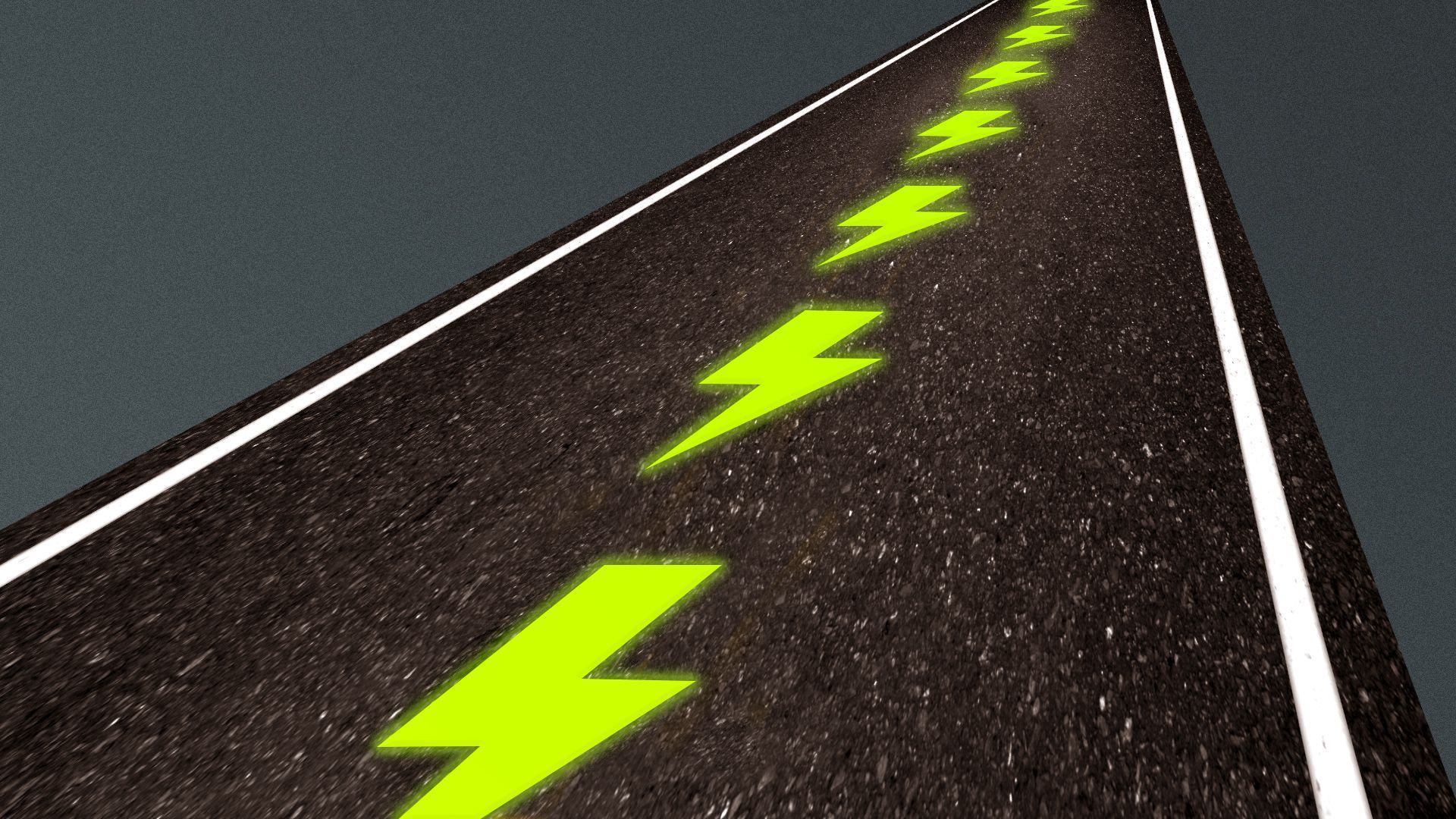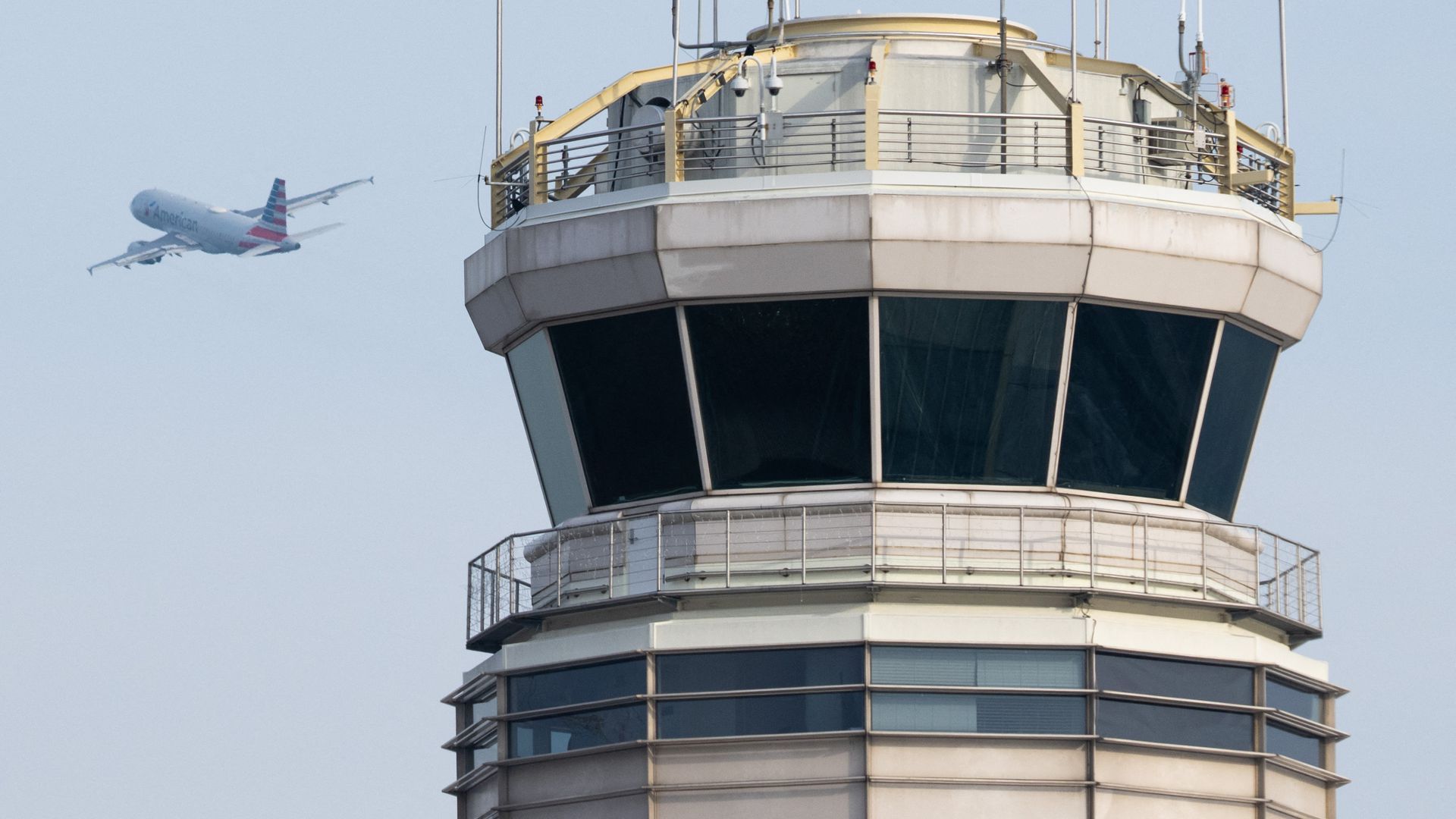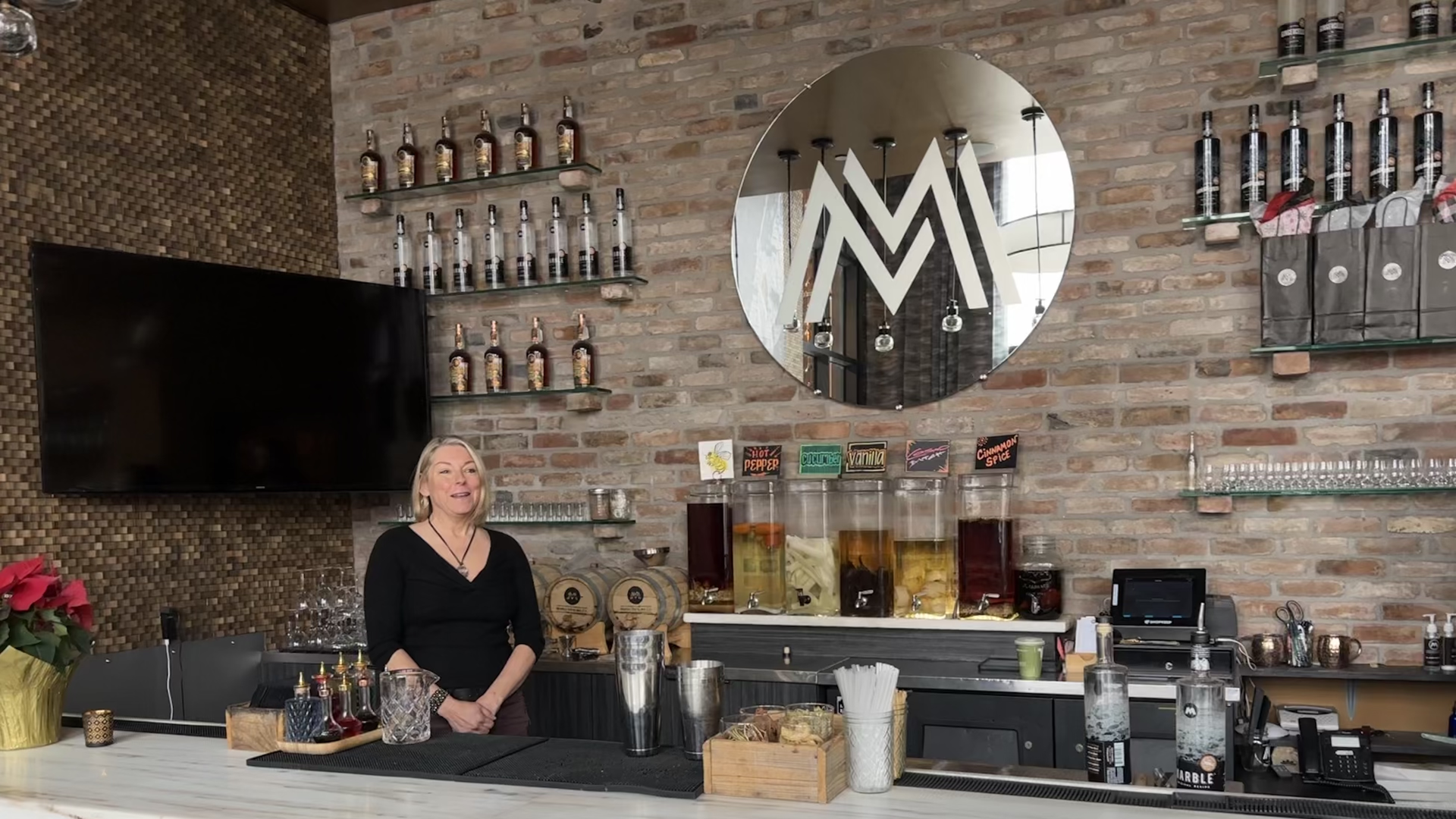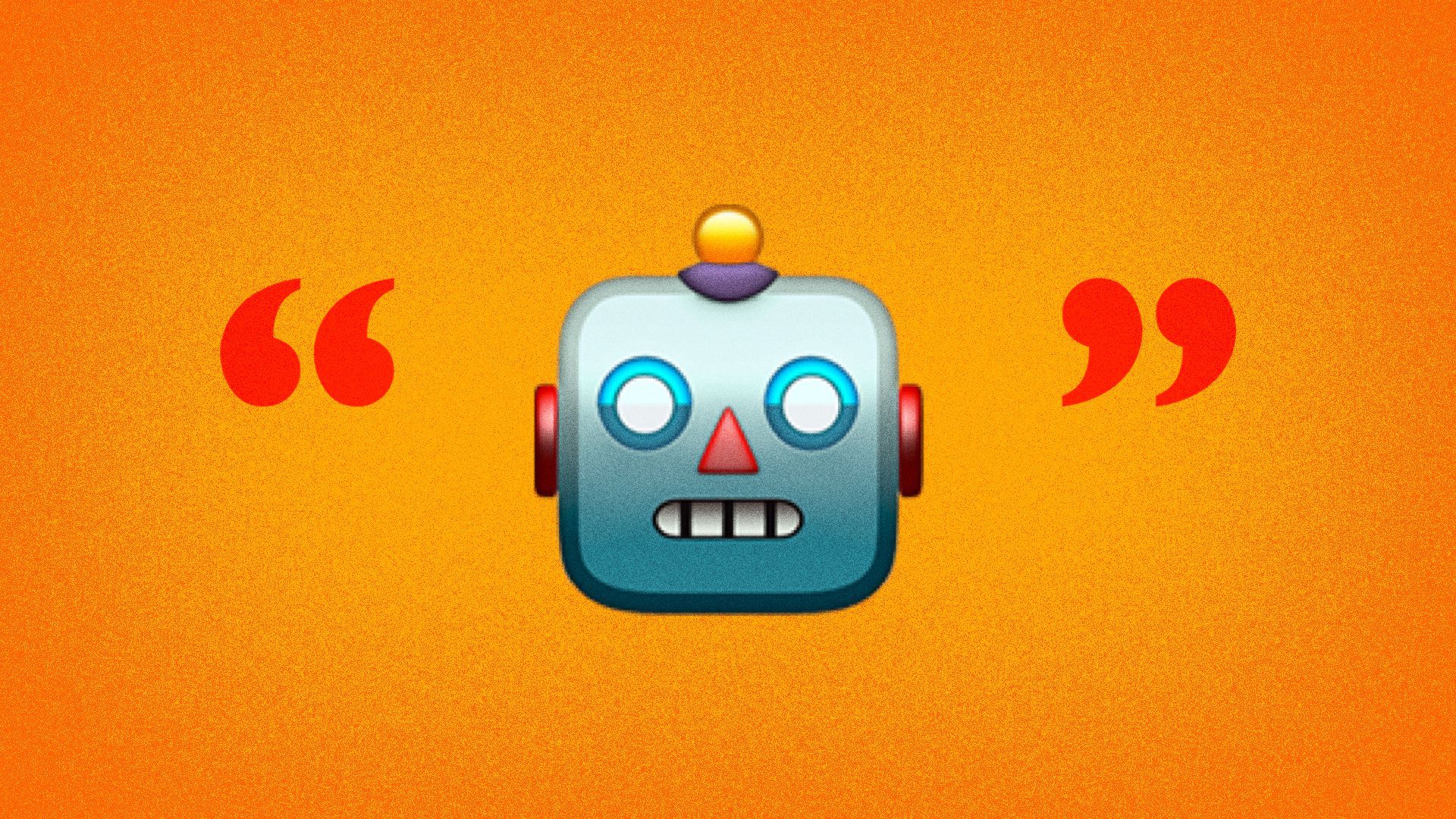| | | | | | | Presented By SiriusXM | | | | Axios What's Next | | By Jennifer A. Kingson, Joann Muller and Alex Fitzpatrick · Feb 16, 2023 | | That Tesla has agreed to open up some of its chargers to electric cars from other automakers is a big deal in the EV world, Joann reports today. - Join Axios today at 12:30 p.m. ET for a virtual event examining the future of the music industry. Guests include Grammy-nominated DJ, producer and entrepreneur Steve Aoki and Audius co-founder Roneil Rumburg.
Today's newsletter is 1,119 words ... 4 minutes. | | | | | | 1 big thing: Tesla opens up |  | | | Illustration: Gabriella Turrisi/Axios | | | | Tesla's agreement to open part of its proprietary car-charging network to drivers of other brands should make it far easier for electric vehicle (EV) owners to charge away from home, Joann Muller writes, potentially accelerating adoption. Why it matters: The Biden administration's clean energy agenda includes a shift away from gasoline-powered cars and a new domestic supply chain for electric cars. But many Americans have resisted buying EVs because they're worried about charging on long road trips. Driving the news: The White House on Wednesday detailed a slew of measures meant to address those concerns — and to ensure that chargers are built in America. - Most notably, Tesla agreed to make portions of its U.S. Supercharger network and its slower-speed destination chargers available to non-Tesla EVs.
Of note: The announcement was made by the White House, not Tesla. - Tesla needed a nudge from President Biden to open up its network, the Washington Post reported.
- On the flip side, the carmaker can now qualify for federal tax incentives for deploying U.S. charging infrastructure.
Where it stands: S&P Global Mobility estimates there are about 20,430 Level 3 "fast-chargers" and 126,500 slower Level 2 chargers in the U.S. today, plus another approximately 16,800 Tesla Superchargers and slower Tesla destination chargers. - That's not nearly enough to support the quickly maturing EV market, according to S&P researchers.
- They forecast we'll need eight times as many chargers by 2030.
What's happening: Tesla will more than double its nationwide network of Superchargers, which are manufactured in Buffalo, New York, the White House said. - At least 7,500 Tesla chargers will be available for all EVs by the end of 2024.
- That includes at least 3,500 new and existing 250-kW Superchargers along highway corridors, as well as slower chargers near places like hotels and restaurants.
💬 Our thought bubble: Having just made a 1,500-mile road trip from Michigan to Florida in a Kia EV6, it would have been nice to have those extra Tesla charging locations available to us. - Instead, we stuck to fast-charging networks operated by Electrify America and EVGo.
Yes, but: Most other EVs, including our press loaner Kia, use a different type of plug than Tesla's proprietary connector. - The connectors are incompatible, although adapters are newly available.
What's needed: Charging should be as simple as filling up with gas. - There should be one standard plug, a single, all-access app, and one billing platform, regardless of what kind of car you drive or what network you charge on.
- This seems to be the goal of the Biden administration, which is now requiring that federally funded chargers use technology that makes it easy to pay for electricity usage.
Yes, but: The devil is in the details, and a multitude of hardware and software issues will need to be worked out before there's a seamless national network of EV chargers. Share this story. |     | | | | | | 2. FAA issues "safety call to action" after near-disasters |  | | | Control tower at Ronald Reagan Washington National Airport in Arlington, Va. Photo: Saul Loeb/AFP via Getty Images | | | | The Federal Aviation Administration's (FAA) acting chief has issued a "safety call to action" after several narrowly averted catastrophes in the past few months have raised serious concerns throughout the aviation community, Alex Fitzpatrick reports. Details: In an agency memo, FAA acting administrator Billy Nolen announced the formation of a "safety review team" to look into "structure, culture, processes, systems and integration of safety efforts" across the national airspace system, including among air traffic controllers. The intrigue: Nolen's memo comes after three alarming near-misses in recent months. - Earlier this month, a FedEx 767 nearly landed atop a Southwest 737 that was cleared for takeoff. The 767 was nearing the runway in bad weather with poor visibility at Texas' Austin-Bergstrom International Airport.
- In January, a Delta 737 aborted its takeoff roll at New York's John F. Kennedy International Airport after an American Airlines 777 errantly crossed onto the runway ahead of it.
- And in December, a United Airlines 777 entered a nearly 8,600 foot-per-minute dive shortly after takeoff from Maui's Kahului Airport, the Air Current recently revealed. The pilots recovered and continued the trip after coming within 800 feet of the Pacific Ocean.
💬 Alex's thought bubble: Each of these potential tragedies was prevented by at least one pilot's recognition that something was wrong — the FedEx crew went around just before colliding with the Southwest jet, the Delta crew saw the American jet and canceled their takeoff, and the United crew realized and corrected their dive before crashing into the ocean. - The details of the United case remain murky. But in the first two incidents, it's clear from the air traffic control recordings that better communication between pilots and controllers could have stopped the chain of events leading to near-disaster far earlier on.
The bottom line: It's a fallacy to think we're "due" for some major air disaster — but each of these incidents came far too close for comfort. Share this story. |     | | | | | | 3. More vodka, less water |  | | | Connie Baker at the Marble Distilling bar in Carbondale, Colo. Photo: John Frank/Axios | | | | Connie Baker is looking to save the Colorado River one bottle of vodka at a time, Axios Denver's John Frank reports. - Baker is co-founder and head distiller at Marble Distilling, a Carbondale, Colorado, distillery using a first-of-its-kind water and energy conservation system.
Why it matters: Marble's system, which reportedly saves more than 4 million gallons of water a year, is one of many innovative micro-solutions that Western water watchers hope will inspire broader action and help save the Colorado River — the most endangered in the nation. How it works: The distillery's water is run through an above-ground geothermal loop before going through a series of condensers and exchangers — a process through which energy is created, stored and reused. Yes, but: The system isn't cheap. - Marble won't see a return on its investment for at least five years, not counting any marketing benefits.
What they're saying: "I'm not going to destroy the planet to make a great bottle of vodka," Baker tells Axios. Read the rest. |     | | | | | | A message from SiriusXM | | Get free access to music, sports, news and more | | |  | | | | Subscribe to SiriusXM Streaming and get access to 3 months of free: - Expertly curated ad-free music.
- Pandora artist stations.
- Live sports.
- Celebrity hosts, comedians and newscasters.
- Howard Stern and more.
More info: Listen on your phone, at home and more with the SXM App. See offer details. | | | | | | 4. AI job alert: "Prompt Engineer" |  | | | Illustration: Maura Losch/Axios | | | | Artificial intelligence (AI) safety and research firm Anthropic is hiring a "Prompt Engineer and Librarian" to get desired results from generative AI platforms similar to ChatGPT, Alex reports. Details: "You will figure out the best methods of prompting our AI to accomplish a wide range of tasks, then document these methods to build up a library of tools and a set of tutorials that allows others to learn prompt engineering or simply find prompts that would be ideal for them," reads the job description. - The pay? $250,000 - 335,000. Not too shabby.
What they're saying: "Anthropic's mission is to create reliable, interpretable, and steerable AI systems," per the firm's site. "We want AI to be safe for our customers and for society as a whole." Why it matters: It's a reminder that, despite (sometimes very real!) concerns that AI might take some people's jobs, it could also create some unexpected — and lucrative — opportunities. |     | | | | | | A message from SiriusXM | | Stream SiriusXM now and get 3 months for free | | |  | | | | Stream more than 425 channels on your devices for free on the SXM App, including expertly curated ad-free music, live sports, personalized stations and more. Next steps: Sign up now to get 3 months free. Cancel anytime. Learn more about the offer and start streaming. See offer details. | | | | Big thanks to What's Next copy editor Amy Stern. Was this email forwarded to you? Get your daily dose of What's Next by signing up here for our free newsletter. |  | | Are you a fan of this email format? Your essential communications — to staff, clients and other stakeholders — can have the same style. Axios HQ, a powerful platform, will help you do it. | | | | | | Axios thanks our partners for supporting our newsletters.
Sponsorship has no influence on editorial content. Axios, 3100 Clarendon Blvd, Arlington VA 22201 | | | You received this email because you signed up for newsletters from Axios.
To stop receiving this newsletter, unsubscribe or manage your email preferences. | | | Was this email forwarded to you?
Sign up now to get Axios in your inbox. | | | | Follow Axios on social media:    | | | | | |








No comments:
Post a Comment